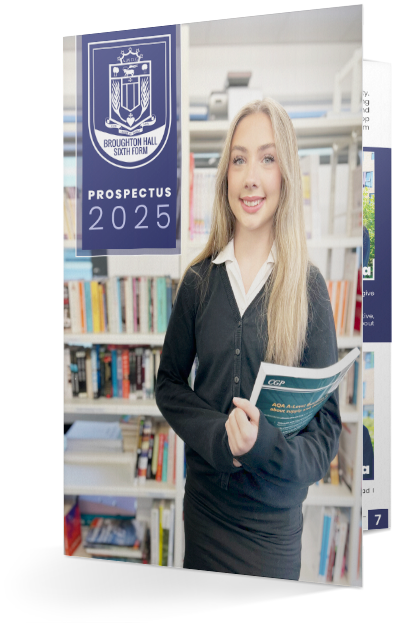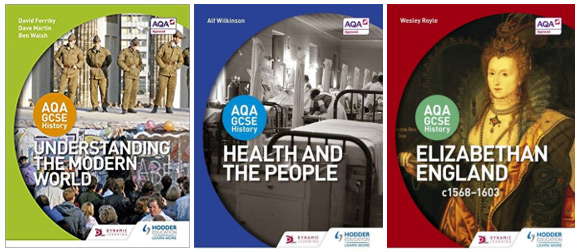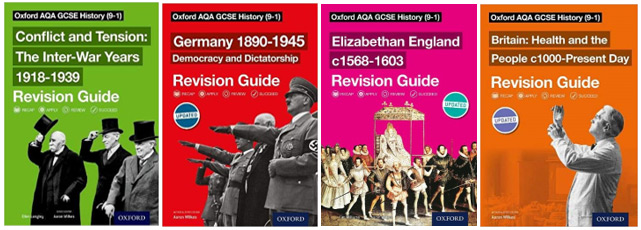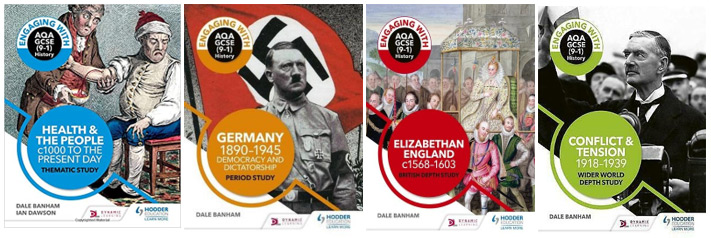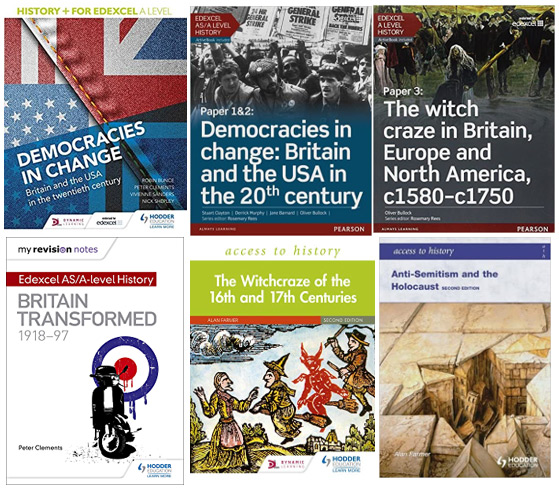Key Information
Level: A LevelExamination Board: Edexcel
Subject Leader: Miss Fairbrother
Entry Requirements
Entry Requirements: History Grade 5, English Language Grade 5.Why Choose this course?
Apart from studying a wide range of interesting historic periods, you'll learn a range of powerful knowledge and develop vital skills that will help you with your future studies and chosen career path and tackling the wider world. A level History will no doubt inspire your curiosity and passion to find out about the past whilst simultaneously developing your disciplinary thinking. The study of History will allow you to develop excellent knowledge requisition, source analysis skills and the ability to develop reasoned arguments and extended writing skills. You will be able to discover how the world around you have evolved, develop skills which go beyond the headlines ad to ask questions properly and to express your own opinion by developing communication skills. History A-Level trains your mind and teaches you how to think and process information so that you become a rounded individual who has an understanding of both past and present. With the extended knowledge you gain, you will be able to understand the origins of modern political and social problems. These transferrable skills are something in which employers are looking for.Prospects
Considered as an enabling subject, History at an advanced level provides a wide and varied base for entry into university and many professions. It can successfully be combined with both arts and science subjects as a foundation for further education. Career paths for History graduates are wide-ranging and include Teaching, Law, Journalism, Media, Archivist, Banking, Researcher, Business and Personnel Management, Local and National Government posts.
Studying our subject will help you enhance key skills that employers want because it involves:
- Learning about people - how they interact, differing perspectives and interpretations, the motives and emotions that can tear people apart into rival factions or help them to work together for a common cause.
- Learning to locate and sift facts - in today's internet-based, information overloaded world, employers really appreciate someone who can sift through the evidence to find the vital information - a skill that history is better placed than any other subject to help you develop.
- Handling evidence to make informed decisions - to identify truth and recognise myth, propaganda and fake news.
- Communicating your ideas and thoughts in a way that makes sense to others - whether that be verbally or in essays, graphs or illustrated reports - and having the confidence to defend your findings. These skills are vital for arguments and presentations in a range of careers.
- Learning about countries, societies, and cultures - so many of today's conflicts and alliances have their roots in the past; how can you understand trade successfully, or report on a country if you know nothing of its culture or history?
Course Content
Paper 1, Option 1H: Britain transformed, 1918-97 (30% of overall grade, breadth study)
This module comprises a study of British history from the end of the First World War in 1918 to the election of Tony Blair as prime minster in 1997. Dring this time Britian was challenged by war, fluctuations in the economy, technological advancement and the desire for greater social equality. The response to these challenges has in many ways created the political, social and economic climate of the 21st century today. Option 1H will show that, far from coming to an end, the British response to the challenges of the twentieth century created a history which is dynamic, interesting and, at times, controversial. Britain experienced the General Strike (1926), the abdication crisis (1936), the Blitz (1940), the birth of the National Health Service (1948), the Suez Crisis (1956), the 'Swinging Sixties' and the election of the first woman Prime Minister (1979) to name just a few events.
The study will be divided into the following four themes:
Theme 1: A changing political and economic environment, 1918-79
Theme 2: Creating a welfare state, 1918-79
Theme 3: Society in transition, 1918-79
Theme 4: The changing quality of life, 1918-79
Historical interpretation focus is: What impact did Thatcher's governments (1979-90) have on Britain, 1979-97?
Paper 2 Option 2H.2: The USA, 1955-92: conformity and challenge (20% of overall grade, depth study)
This module looks in depth at the changing landscape of the USA post WW2 affluence, through racial and political protests in the 1960s, to the rise of right-wing groups in the 1980s and the America of Ronald Reagan. The topic is divided into the following four topics:
Topic 1: Affluence and conformity 1955-63
Topic 2: Protest and reaction, 1963-72
Topic 3: Social and political change 1973-80
Topic 4: Republican dominance and its opponents 1981-92
Paper 3: The witch craze in Britain, Europe and North America, c1580-c1750 (30% of overall grade, breadth and depth study)
This module comprises two parts: the breadth focus is on long-term changes and contextualises the aspects of the depth which focus in detail on key episodes. Together, the breadth and depth topics explore the nature of the witch craze that took hold in the late 16th century and the changing attitudes to magic and sorcery that eventually contributed to its decline. You will study the social, economic, political and dimensions of the phenomenon and the broad intellectual changes that ushered in what is often called the Age of Reason.
Breadth
Theme 1: changing attitudes to witchcraft in Britain
Theme 2: The wider intellectual context: the coming of the Age of Science and Age of Reason.
Depth
Theme 1: North Berwick witches in Scotland, 1590-1 and the aftermath to 1597
Theme 2: The Lancashire witches of 1604-1613
Theme 3: The Great Witch Hunt in Bamberg, Germany 1623-32
Theme 4: Matthew Hopkins and the East Anglian witch craze 1645-47
Theme 5: Cotton Mather and the Salem witch hunt, 1692-93
Coursework: worth 20% of the overall A-level grade, this is a 3,000 word essay which involves a critical analysis on the debate surrounding the formation and execution of the Holocaust.
Course Opportunities/ Activities
The History Department at Broughton Hall Catholic High School recognise the value of students learning and developing beyond the walls of a classroom. Trips enhance the teaching and learning of any History course and can effectively enable students to experience first-hand places, people and issues, bringing to life the topics being studied. In addition, we offer online lectures where appropriate for the course delivered by professors.
Trips:
Year 12 Houses of Parliament
Year 13 Pendle Hill
Year 13 Lessons from Auschwitz
Year 12/13 Washington and New York
Year 13 Library visit
Support and Challenge
Students are given the knowledge and confidence they need to be successful through our student centered approach. Our History team ensure the needs of every student is met via support in the classroom via evidence-informed teaching strategies, intervention and course materials. Our ambition for all means we are determined to remove any barriers in students achieving their true potential. Personalised and detailed feedback is given and students reflect and improve their answers. For each unit, reading materials are provided along with challenging scholarship and articles. Lastly, staff are experts in their subject field within the subject discipline and the exam board.
Student Comment
History is a great subject because it allows to extend your knowledge about the wider world and it explains why the world it is today. The subject is extremely interesting and the teachers make the lessons engaging and intellectual stimulating.
The topics I studied at GCSE were interesting, but A-Level History is definitely more engaging. Although you might know about certain events, people or legislation, A-level History adds depth and critical thinking to your knowledge. I find that History compliments my other subjects really well, as I am able to transfer knowledge from History to Psychology or English Literature. It can definitely be challenging at times, but I am thankful that my History teachers are able to provide support when I need it.

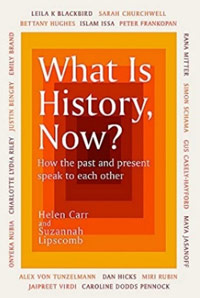 At Broughton Hall, the History department strive to make the curriculum inclusive, decolonised, and representative. We illuminate the whole picture, giving students a sense of history that is wider than a narrow national narrative. We have carefully crafted a sequential, and a broad curriculum that aims to produce 'citizen historians' so that our students can understand the world we live in and can interact with it acutely.
At Broughton Hall, the History department strive to make the curriculum inclusive, decolonised, and representative. We illuminate the whole picture, giving students a sense of history that is wider than a narrow national narrative. We have carefully crafted a sequential, and a broad curriculum that aims to produce 'citizen historians' so that our students can understand the world we live in and can interact with it acutely.
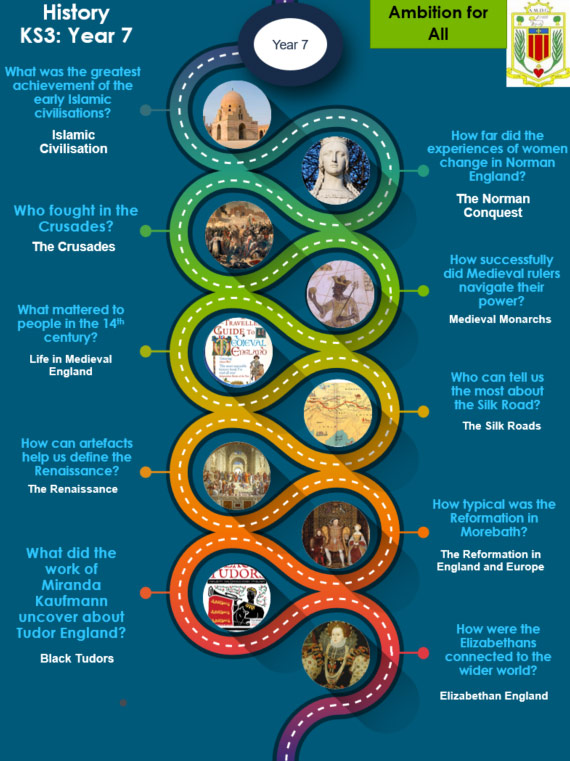
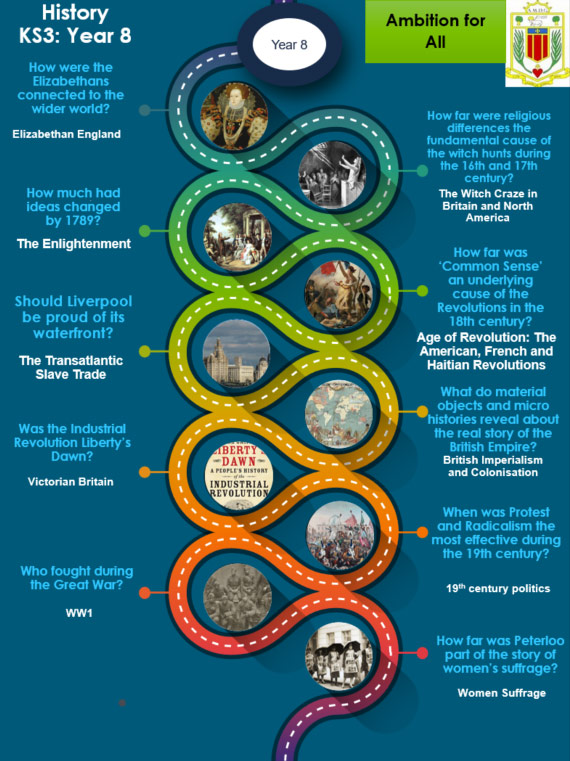
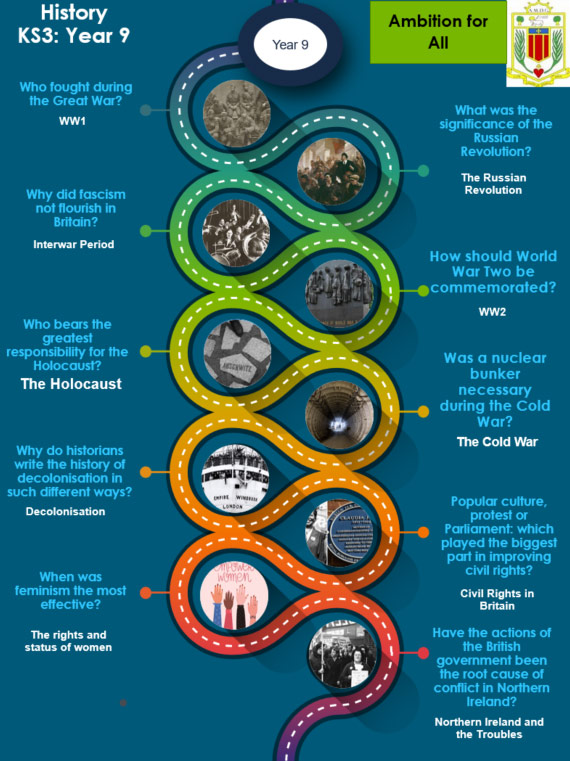
 History allows you to gain knowledge of the powerful and a deep understanding of the world in which we live today. By studying GCSE History, you will prove your ability to develop and extend your knowledge and understanding of specific key events, eras, and societies in national and world History. You will become a successful independent learner and a critical and reflective thinker. In History you can assemble, organise, and present facts and opinions. Studying History informs the present and gives you the skills you need to prepare for the future.
History allows you to gain knowledge of the powerful and a deep understanding of the world in which we live today. By studying GCSE History, you will prove your ability to develop and extend your knowledge and understanding of specific key events, eras, and societies in national and world History. You will become a successful independent learner and a critical and reflective thinker. In History you can assemble, organise, and present facts and opinions. Studying History informs the present and gives you the skills you need to prepare for the future.
